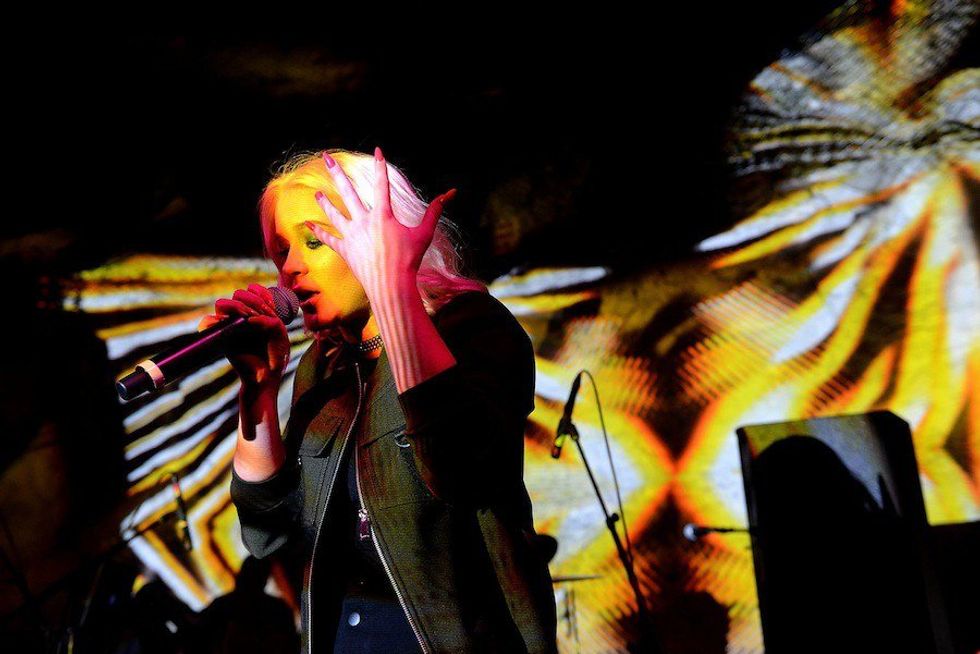Awhile back, I was cruising down the highway blasting a local Top 40 station when I was introduced to a new song I was unfamiliar with, entitled “Ain’t My Fault” by Zara Larsson. As I listened to the opening notes, I almost turned it off as it wasn’t really my vibe; however, once the song began in earnest and I started listening to the lyrics, the more bothered I became; there seemed to be a troubling number of familiar phrases which triggered an initial response of disgust and confusion.
Surely this song couldn’t be saying what I think it is, could it?
I tried to brush it off as the song progressed, telling myself there was no way a female artist (or any artist, for that matter) would be willing to perform and promote such a message and that it must be some statement of irony; unfortunately, after listening to it several more times, I don’t believe this to be the case.
Some of the key phrases which served to set me off on the following tangent included: “It ain't my fault I'm not leaving alone/It ain't my fault you keep turning me on,” and “Baby, I insist, please don't blame me for whatever happens next," among others.
Needless to say, these lyrics are a bit disturbing. Probably the most unsettling of all, however, is how Zara Larsson rarely (if ever) acknowledges her partner’s perspective or level of involvement, creating a creepy, non-consensual mood which (hopefully) leaves the listener a little more uncomfortable than they were before the experience.
My fear is that some may give this song a pass because of the singer’s gender, even though this is practically textbook promotion of rape culture, complete with an (albeit subdued) ideology of victim-shaming. The beginning of the second verse states: “It ain't my fault you came here looking like that/You just made me trip, fall, and land on your lap.” Why might this sound so familiar? Perhaps because this is a common excuse among rapists who refuse to own up to the deplorable nature of their actions. Sadly, the victims are often the ones who come under fire for dressing provocatively or giving other “non-verbal” cues which elicited the offender’s actions.
This mindset is reflected once again in the song when Larsson refuses to take responsibility for any of her choices: “So if I put your hands where my eyes can't see/Then you're the one who's got a hold on me/No, I can't be responsible […]” This section of the song is probably the most egregious, as its blatant deception and manipulation are framed as a coy, playful remark.
At this point, I may be accused of overreacting. Surely this song isn’t promoting rape; it’s just a young woman’s joking flirtation with a stranger at a club. While I understand why some would brush my concerns aside, I would like to genuinely ask what your reaction would be if a man were singing these lyrics (“Blurred Lines,” anyone?). I assure you, it would be read as much more menacing. One reason for this would be that a majority of rapes are committed by men; as a result of this statistic, we’ve been conditioned to watch men’s words and actions more closely.
But does a woman saying equally questionable things make it okay? Of course not. Excusing someone from improper behavior based on their gender isn’t equality, it’s ignorance. Similarly, I believe the perpetuation of rape culture isn’t solely a gender-based issue, but one of human rights. Not only women are rape victims, and the widespread generalization which posits otherwise is only doing harm as it incites fear and isolation in victims who aren’t a part of the majority.
But what if the song was self-aware and was actually trying to counter society’s perceptions of sexual violence? To that I would say: if “Ain’t My Fault” was written in response to the saturation of rape culture, I would assert that it was a job poorly done. Swapping genders within a scenario to prove a point is still perpetuating the behavior, even if it’s only on a subconscious level. To solve the problem, don’t just turn the tables to shift the blame onto someone else; instead, reinvent the discourse and take a stand for acceptable, considerate human behavior rather than allowing anyone (regardless of gender) to take advantage of anyone else.
Don’t get me wrong; by no means am I calling Zara Larsson a rapist or saying that she or her producers consciously promote rape culture. I’m simply drawing attention to some problematic ideologies which are deeply ingrained in the popular consciousness and have happened to manifest in this song. I believe rape culture is still very prevalent, and may appear not to be because it thrives on subtlety; to make a change we must draw attention to the issue itself rather than sweeping it under the rug or making excuses for unacceptable behavior.





















